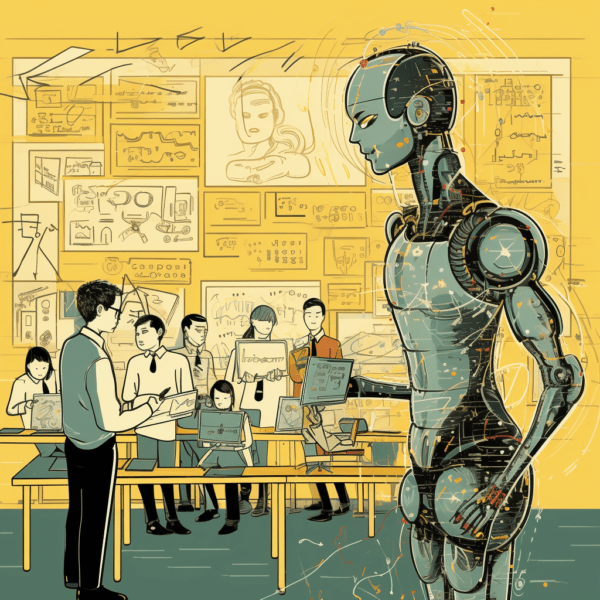Last week I asked a “What if?” question about the way generative AI might change the ways that learners interact with instructional materials like textbooks. This week I’d like to ask another.
I’m at the GRAILE workshop on AI and higher education in Denver today, and sitting here in this space I’m hearing things through a slightly different filter. For example, when someone mentioned teaching assistants earlier this morning, it made me think – what if generative AI could provide every instructor with a genuine teaching assistant – a teaching assistant that actually assisted instructors with their teaching?
Historically (and unfortunately), the teaching assistant role is often reduced to grading papers and doing other administrative tasks that faculty don’t want to do. What would it mean for a TA to actually assist an instructor with their teaching? A genuine teaching assistant might suggest a range of appropriate evidence-based teaching practices to instructors, including:
- helping instructors plan activities that help them get to know their students and understand their needs and interests,
- helping instructors plan what to do with their classroom time, including designing in-class, collaborative active learning activities,
- helping instructors plan how to reach out to and support students who need extra help,
- helping instructors design performance-based assessments and rubrics they can use in scoring them,
- etc.
The overwhelming majority of faculty have no training whatsoever in teaching and learning. Instead, they have extensive training is in their discipline, like art or economics or history or engineering. What if we fine-tuned a generative AI model on evidence-based teaching and learning practices so that it could help instructors be better teachers? Could a tool like that play a role in improving student success?
